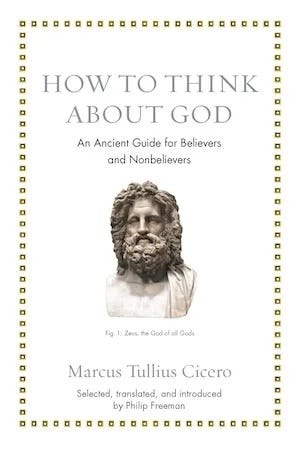Member-only story
How to think about God with Cicero
Part XVIII of the Ancient Wisdom for Modern Readers series

[Based on How to Think about God: An Ancient Guide for Believers and Nonbelievers, by Cicero, translated by Philip Freeman. Full book series here.]
God is on everyone’s mind. Whether you are a religious person (the majority of humanity) or an atheist, God is part of your life either because you think it exists or because you are confident it doesn’t. Which is why this lean excerpt from Cicero’s On the Nature of the Gods will make for fun and simulating reading for pretty much everyone.
The original Roman religion, before Rome became a power to be reckoned with in the Mediterranean, was centered on a few interconnected elements. There were the Lares, a mix of household gods and ancestors who watched over the safety of the family. There were the Penates, the gods protecting the inner household, as implied by the name, which comes from penus, Latin for the innermost part of the house.
There was also Vesta, the goddess of the sacred hearth fire, which was to be attended to by a special cast known as the Vestal virgins. It was said that Rome would last so long as the fire of Vesta would keep burning. These and other gods, protectors of roadways and seaways, of towns and cities, of livestock and agriculture, were divine spirits representing forces of nature, and lacked statues in human form, or stories associated with them, like in the Greek myths.
Then there were state cults, like that of Jupiter, lord of the heavens. A gigantic temple dedicated to him towered over the Capitoline Hill, right above the Forum. There was Mars, god not just of war, but of agriculture as well. And one of my favorite, Bona Dea, literally the good goddess, worshipped only by women (that tells you something, no?).
Of course pretty soon Rome’s domain expanded over Italy first and the rest of the Mediterranean later. While this was happening, new gods were imported and joined the Roman pantheon, one of the many reasons Rome’s domination lasted for so long: pay taxes and don’t foment rebellion, and in exchange you can keep your gods and benefit from all that Rome could provide.
